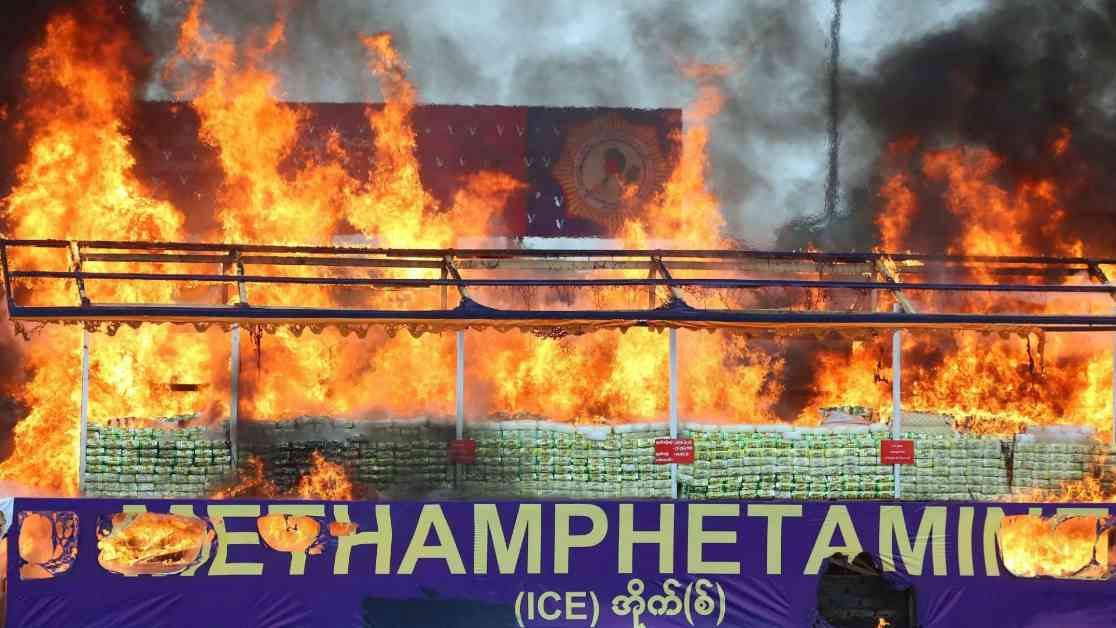Exploring the Dark World of Drug Addiction and Crime in Myanmar
In a land known as the Golden Land, where unspoiled beaches and stunning temples paint a picture of beauty, lies a dark underbelly that has earned Myanmar the title of the world’s organized crime hotspot. Since the military coup of 2021, this South East Asian state has become a breeding ground for warlords, human traffickers, drug syndicates, and cyber criminals, turning it into a hub for international crime.
The Impact of the Drug Trade
In the shadow of civil war and political unrest, Myanmar has emerged as a major player in the global drug trade, becoming the world’s second-largest producer of opium and the largest producer of heroin in the region. The Burmese Military’s involvement in facilitating this trade has allowed the drug economy to thrive, with opium poppies openly cultivated in the once-hidden fields.
According to Mark Farmaner, Director of UK-based charity Advance Myanmar, the military’s complicity in drug trafficking dates back to the 1990s, with corrupt members benefiting both politically and personally from the illicit trade. Amidst the chaos, the opium poppy, known as ‘the peace flower’ in the Shan region, has become a symbol of conflict as criminal gangs fight for control over its profitable market.
The Rise of Synthetic Drugs
Beyond opium and heroin, Myanmar has also become a key player in the production of synthetic drugs like methamphetamine, ketamine, and fentanyl. The proliferation of jungle drug factories has flooded the market with these substances, driving down prices and fueling addiction among the populace. The allure of cheap, potent substances like yaba and ‘happy water’ has led to a surge in drug abuse, with devastating consequences for communities across the country.
Mark Farmaner highlights the military’s dual approach to drug use, allowing it in ethnic states to weaken resistance while cracking down on it in central Myanmar. The systemic corruption and collusion with criminal elements have perpetuated a cycle of addiction and exploitation, leaving many locals trapped in a web of substance abuse and criminal activity.
The Nexus of Crime: Illegal Gambling and Financial Scams
In addition to the drug trade, Myanmar has become a hotbed for financial scams and illegal gambling, often linked to human trafficking operations. The rise of online scam ‘factories’ and casino operations has created a ‘mini Las Vegas’ on the country’s border, drawing in victims from across the globe who fall prey to elaborate schemes orchestrated by criminal syndicates.
As the United Nations estimates reveal, thousands of foreigners are coerced into cybercrime and online gambling industries, enduring harsh conditions and exploitation at the hands of their captors. The complicity of the Burmese Military in these illicit activities has further entrenched Myanmar’s reputation as a breeding ground for crime and corruption, with little recourse for those caught in the crossfire.
The human toll of these criminal networks is staggering, with local communities bearing the brunt of the lawlessness that pervades their daily lives. As the country grapples with a legacy of conflict and corruption, the impact of global organized crime continues to reverberate across Myanmar, leaving a trail of destruction in its wake.













